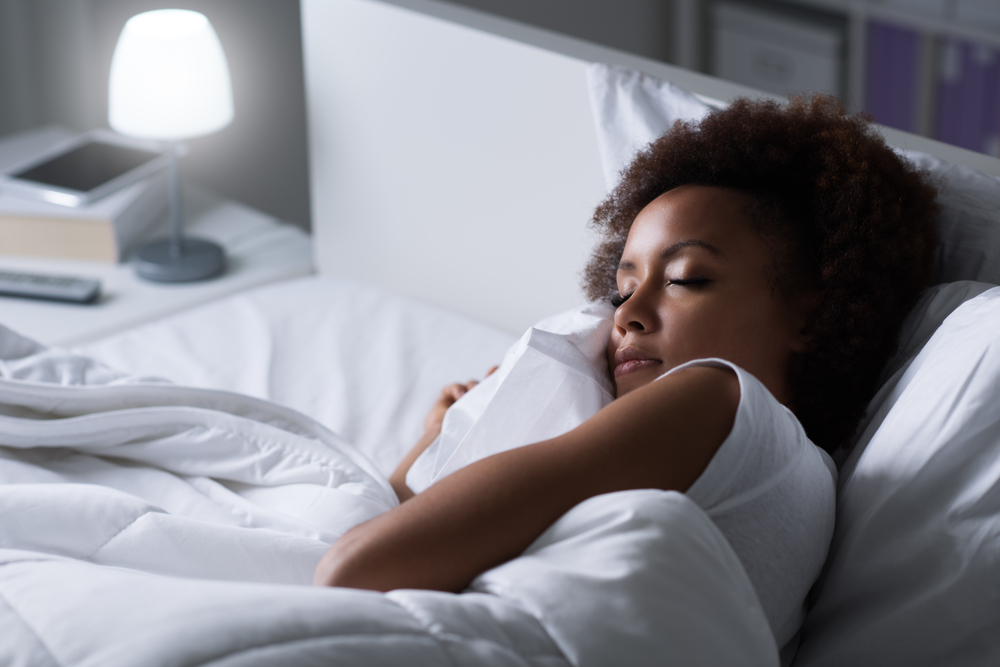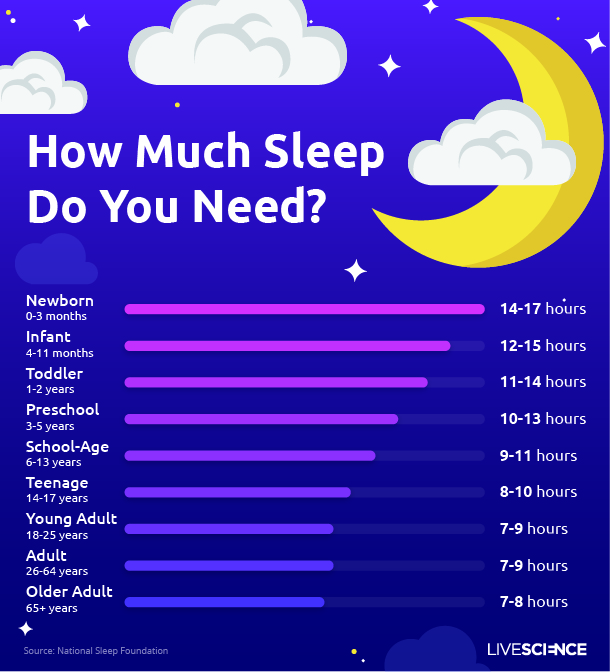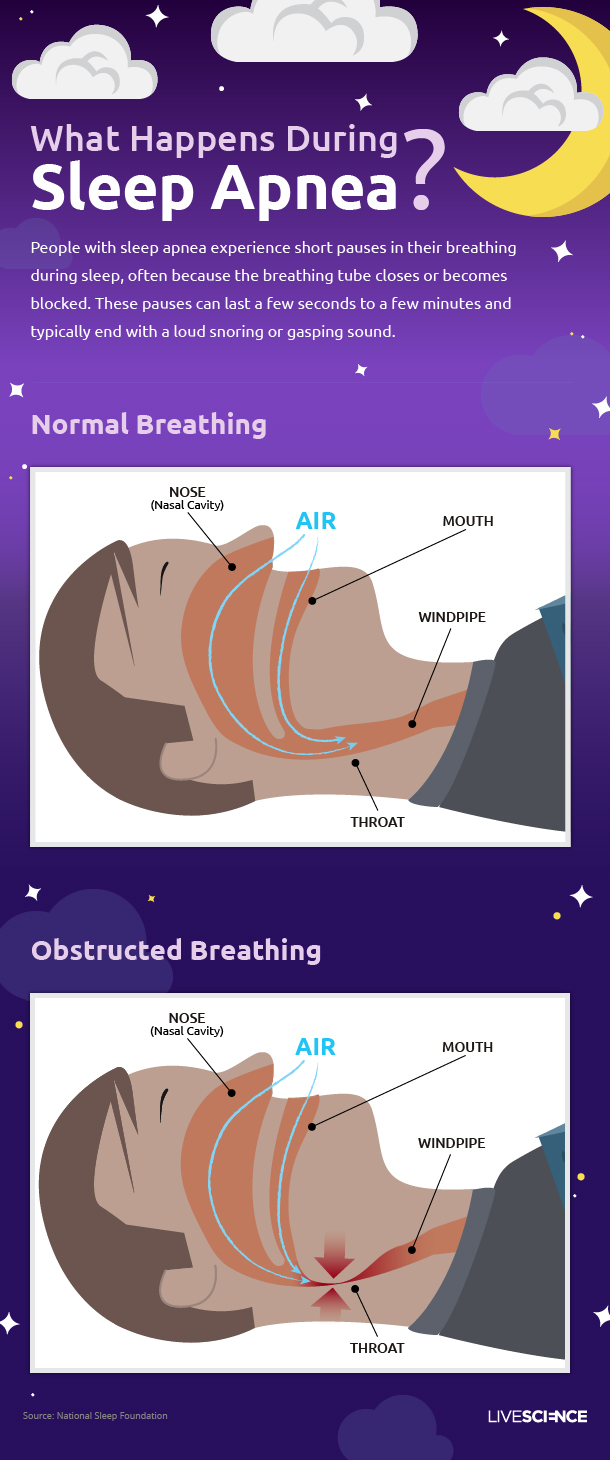
How to Sleep Better

Get the world’s most fascinating discoveries delivered straight to your inbox.
You are now subscribed
Your newsletter sign-up was successful
Want to add more newsletters?
Join the club
Get full access to premium articles, exclusive features and a growing list of member rewards.
Live Science is bringing our readers a monthly series on personal health goals. We'll give you tips and tricks for reaching those goals, based on the advice we've gathered from the countless health experts we've interviewed. Each month, we'll focus on a different goal, and the goal for August is "Get Better Sleep." Follow us on Facebook and Twitter to connect with other readers who are working toward these goals.
Jump to: January — Lose Weight | February — Eat Healthy | March — Start Exercising | April — Cope with Allergies | May — Protect Yourself from Sun and Heat | June — Stay in Shape Outdoors | July — Get Gutsy About Gut Health
Falling asleep — sounds simple, right? But for people who struggle to fall asleep or stay asleep through the night, or for those who can't stop hitting the snooze button in the morning, getting good sleep can feel pretty complicated. On this page, Live Science brings you the science behind sleeping more soundly. We've rounded up our best reporting, from bedtime tips to the latest studies on the science of sleep, to help you get the shut-eye you need.
Why sleep?
For starters, why do we even need to sleep in the first place? The answer is a bit murkier than you simply sleep because you feel tired. In fact, why people need sleep remains somewhat of an unsolved mystery in science. But research has shed some light on the reason for our slumbers, including that sleep may help the brain cleanse itself of toxins at night.
More info:
- Why Do We Sleep?
- A Night's Sleep Cleans Brain of Harmful Toxins
- The Longest Night: Do We Sleep Better on the Solstice?
And although the exact reason for sleep remains unknown, scientists do know a bit (though not everything) about what goes on while a person sleeps. Experts break down sleep into several stages, known as the stages of sleep. Here's what goes on in each of them:
Falling asleep and staying asleep
Some scientists compare the process of falling asleep to a computer shutting down: The brain goes through a series of steps, "shutting down" certain areas as sleep sets in. But what can help a person fall asleep, and then stay asleep? And how much sleep do you actually need?
Get the world’s most fascinating discoveries delivered straight to your inbox.
More info:
- How Do We Fall Asleep?
- How Much Sleep Should You Get? New Recommendations Released
- How Much Sleep Does Your School-Age Child Need?
- Busting the 8-Hour Sleep Myth: Why You Should Wake Up in the Night
- How Long You Sleep May Be in Your Genes
- Why Does the Sound of Water Help You Sleep?
- 'Super Sleepers' May Actually Be Sleep Deprived
- 5 Surprising Sleep Discoveries
All about insomnia
More than 1 in 4 Americans say they don't get enough sleep from time to time, and nearly 1 in 10 say they have chronic insomnia, according to the Centers for Disease Control and Prevention (CDC). But what, exactly, does it mean to have insomnia? People with insomnia may have trouble falling asleep at night, or they may have trouble staying asleep, the CDC says. Some people with insomnia may wake up too early in the morning, and they may be unable to fall back to sleep.
More info:
- Insomnia: Symptoms, Treatment & Prevention
- 7 Strange Facts About Insomnia
- Brain Scans May Reveal How People with Insomnia May Be Wired Differently
- Procrastinators Beware: Insomnia Linked with Putting Things Off
- Insomnia Can Worsen Chronic Pain Conditions
- Log On, Sleep Better? Online Therapy for Insomnia Shows Promise
Sleep apnea
Sleep apnea is another common sleep disorder — but people don't always know they have it, because the condition often goes undiagnosed, according to the National Heart, Lung and Blood Institute (NHLBI). People with sleep apnea experience short pauses in their breathing during sleep, often because the breathing tube closes or becomes blocked. These pauses can last a few seconds to a few minutes and typically end with a loud snoring or gasping sound. Although the condition sounds frightening, many people with it don't realize they have it, simply because they continue to sleep through the night. But sleep apnea takes a toll: The condition causes people to shift out of deep, restorative sleep and into light sleep, the NHLBI says.
More info:
- Sleep Apnea: Symptoms, Causes and Treatments
- Sleep Apnea Linked with Silent Strokes
- How I Can Tell If I Have Sleep Apnea?
- Kids with Sleep Apnea More Likely to Develop Behavioral Problems
- Breathing Problems During Sleep Linked with Cancer
How sleep affects your health
Not getting enough sleep can be a drag if it happens once in a while, but if you miss out on it regularly, the effects can build up and take a serious toll on your health. Recent research has shown that sleep deprivation can increase a person's risk of diseases such as heart disease and type 2 diabetes.
More info:
- Why Sleep Is So Important for People at Risk for Heart Disease
- The Spooky Effects of Sleep Deprivation
- Lack of Sleep May Boost Diabetes Risk
- Getting Too Little Sleep Raises Hunger Levels
Benefits of a good night's rest
On the other hand, getting a good night's rest can do wonders for your health, from improving your mood and appearance to even giving the brain a chance to reset its neural networks to prepare for the day ahead. Here's the latest on the benefits of sleep:
- Sleeping Beauty: Science Proves Beauty Rest Is Real
- Sleeping Shrinks the Brain, and That's a Good Thing
- Hit the Sack! People Who Get a Good Night's Sleep Are Happier
- Sleep Is Important to Weight Loss, Research Suggests
- After a Good Night's Sleep, Brain Cells Are Ready to Learn
Seriously — get your tech out of the bedroom
Are smartphones, tablets and laptops ruining your sleep? A slew of science studies point to a pretty clear "yes." Certain types of light from these devices can trick the brain into thinking it's daytime, suppressing the brain's release of the sleep hormone melatonin. Experts agree: The best way to put a stop to this particular sleep obstacle is to simply keep your tech devices out of the bedroom.
More info:
- How Blue LEDs Affect Sleep
- More Science Says Smartphones Spoil Sleep
- For Teens, Falling Asleep Gets Harder with More Screen Time
- Touch Screens May Be Ruining Toddlers' Sleep
- Apple's 'Night Shift' Mode: How Smartphones Disrupt Sleep
Strange sleep conditions
For some people, sleep troubles can stem from conditions beyond insomnia and sleep apnea. These sleep conditions can sound strange and frightening — and, in some cases, such as sleep paralysis or "exploding head syndrome," they are. Here's the lowdown on a few of the stranger things that can go wrong during sleep.
More info:
- The Demon on Your Chest and Other Terrifying Tales of Sleep Paralysis
- Hearing Crashes, Seeing Light: Life with Exploding Head Syndrome
- Should You Wake Up a Sleepwalker?
- Why Do People Talk in Their Sleep?
- Strange Sleep Disorder Makes People Appear 'Totally Drunk'
- Top 11 Spooky Sleep Disorders
Originally published on Live Science.

 Live Science Plus
Live Science Plus













